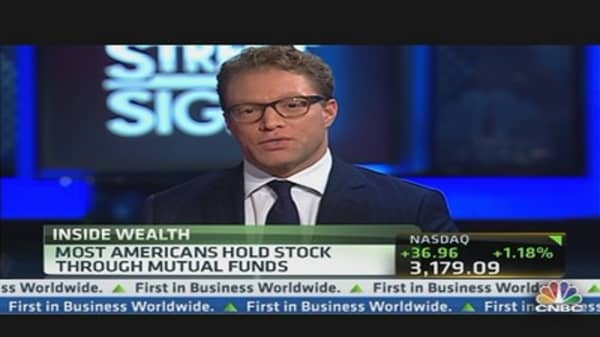Are you feeling rich at Dow 14,000?
Unless you're in the One Percent, the answer is probably no.
While the surging stock market has boosted 401K plans and pension funds for many Americans, it's the top one percent who tend to get the biggest lift from significant stock market rallies.
According to the Federal Reserve, the wealthiest one percent of Americans own 52 percent of all directly owned, publicly traded stocks in the United States. The top 5 percent own 82 percent of directly held stocks.
(Read more: Dow 14,000 Fuels a New Wealth Boom)
Yes, stocks have become more widely held over the past two decades. And roughly half of Americans own some stocks through mutual funds and pension funds. The higher Dow and the "wealth effect" will no doubt lead to greater spending in the economy over time.





